All issues

Volume 45, Issue 6
Displaying 1-4 of 4 articles from this issue
- |<
- <
- 1
- >
- >|
practice articles
-
Brian Sanjay Heist, [in Japanese], Gautam Deshpande, [in Japanese], [i ...2014 Volume 45 Issue 6 Pages 401-413
Published: December 25, 2014
Released on J-STAGE: May 16, 2016
JOURNAL FREE ACCESSBackground: Virtual Patient Simulation (VPS) is commonplace in Western medical education and, globally, increasingly popular as a means to teaching clinical reasoning. VPS is not popular in Japan. This pilot study evaluates the receptiveness of Japanese junior resident physicians to VPS and the effectiveness of VPS on their clinical reasoning.
Methods: Each first-year junior resident physician at 4 residency programs (n=54) was assigned a randomized sequence to complete 5 VPS modules. In accordance, online access was provided to each subsequent module at 6 day intervals. We evaluated participants’ change in performance on pre-post administration of a validated instrument of diagnostic reasoning. We developed a scoring rubric and evaluated change in efficiency of selecting items in the history and physical examination portions of the modules. Upon completing the module series, participants received a validated questionnaire on the effectiveness of VPS.
Results: Pre-posttest improvement in diagnostic reasoning scores was not statistically significant (p=0.07). Improvement in efficiency from 1st to 5th modules was significant for history taking (p<0.01), but not physical examination (p=0.697). Mean perceived effectiveness of VPS was superior to traditional methods (mean 3.58-3.71 on 1-5 Likert scale) for understanding methods of diagnosis, medical management, generation of differential diagnosis, and knowledge about clinical cases.
Conclusions: First-year resident physicians demonstrated enthusiasm for VPS. Improvement on the validated measure of diagnostic reasoning was not confirmed and thus, it is premature to draw conclusions on the effectiveness of VPS amongst Japanese junior resident physicians. Larger scale follow-up investigation is warranted.View full abstractDownload PDF (910K)
Invitation paper
-
Akira Nakashima, Noriyuki Koibuchi, Masaru Ishimatsu, Tetsu Okumura, M ...2014 Volume 45 Issue 6 Pages 415-420
Published: December 25, 2014
Released on J-STAGE: May 16, 2016
JOURNAL FREE ACCESSA system for Physiology Educator Accreditation was established by the Physiological Society of Japan in 2013 and then implemented. The accreditation process starts by the applicant participating in the education program during the society’s annual meeting, after which the applicant’s teaching and research experiences are reviewed. The education program consists of model lectures to learn teaching skills and lectures to obtain up-to-date knowledge about physiology. The main purpose of the system is to provide an opportunity to obtain a wide range of knowledge and skills for physiology teaching for teachers working at medical universities and universities of life sciences and for young researchers aiming for a tenure-track academic position.View full abstractDownload PDF (925K)
opinion
-
Christine Kuramoto, Ruri Ashida, Junji Otaki2014 Volume 45 Issue 6 Pages 421-423
Published: December 25, 2014
Released on J-STAGE: May 16, 2016
JOURNAL FREE ACCESSDownload PDF (873K) -
[in Japanese]2014 Volume 45 Issue 6 Pages 426-427
Published: December 25, 2014
Released on J-STAGE: May 16, 2016
JOURNAL FREE ACCESSDownload PDF (777K)
- |<
- <
- 1
- >
- >|